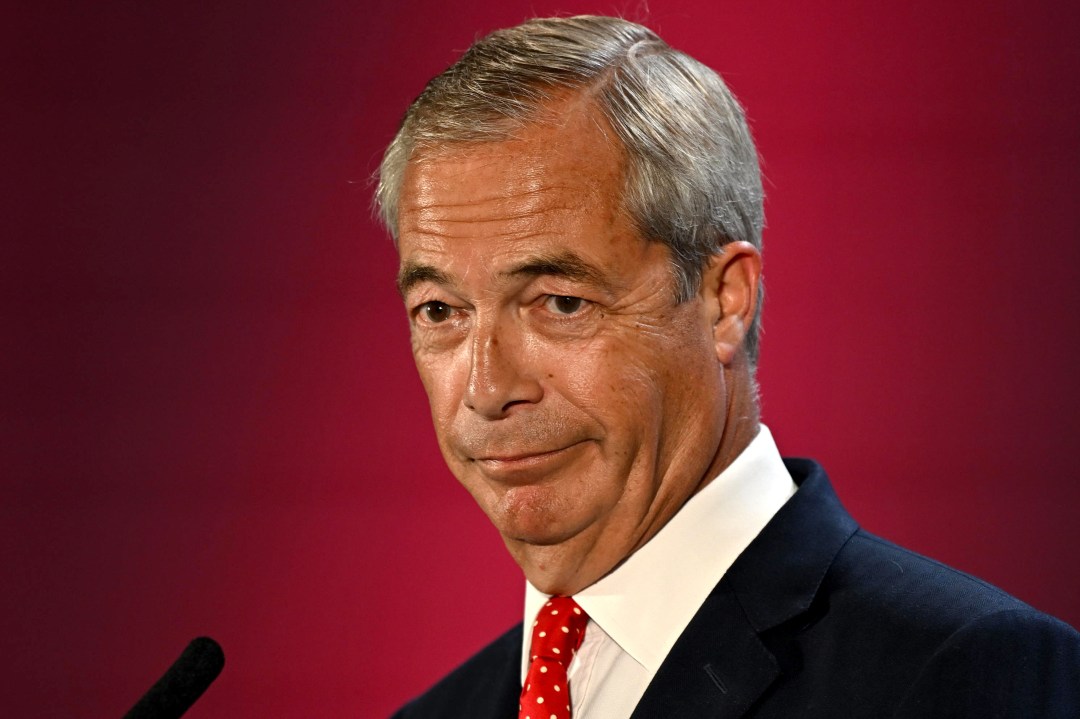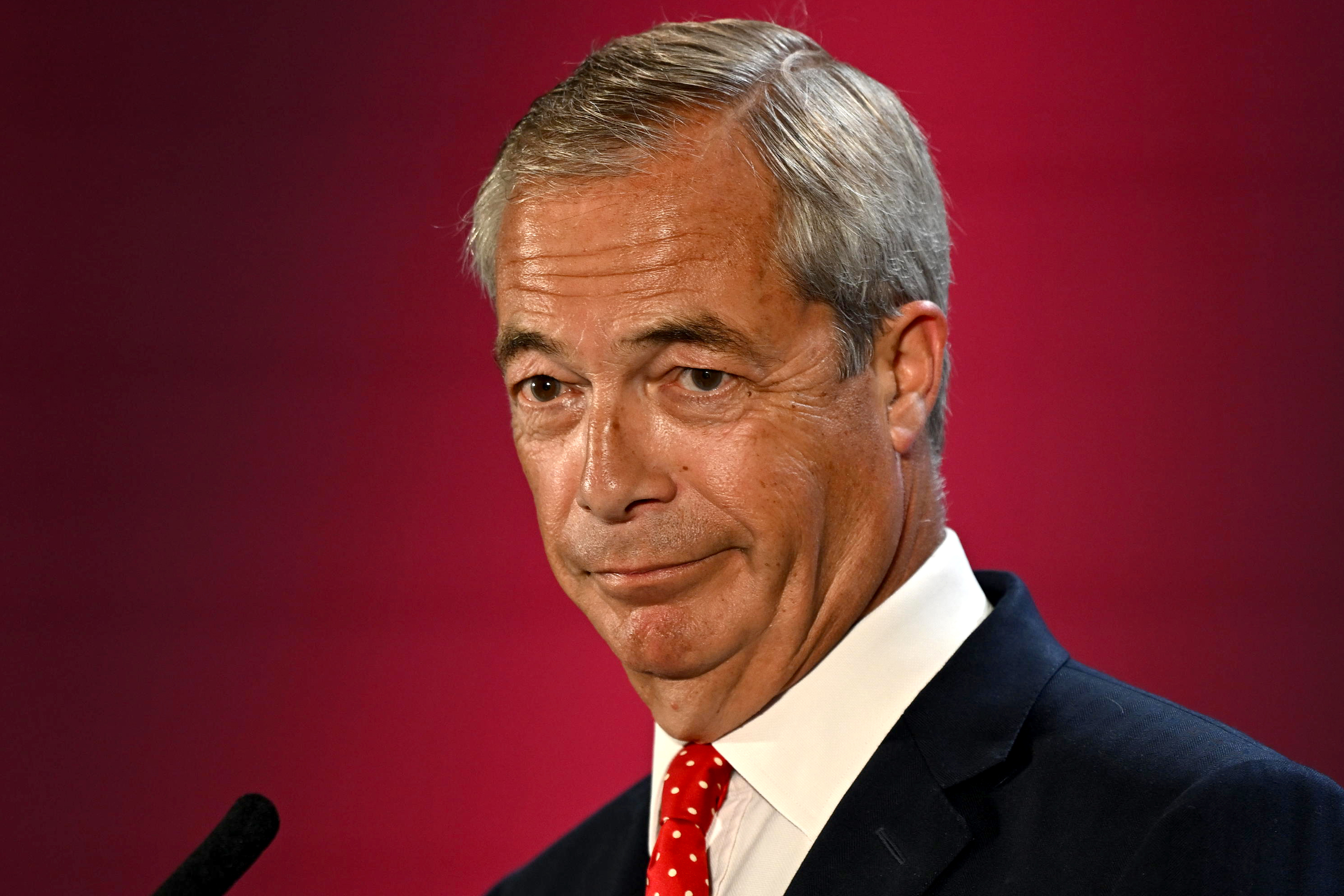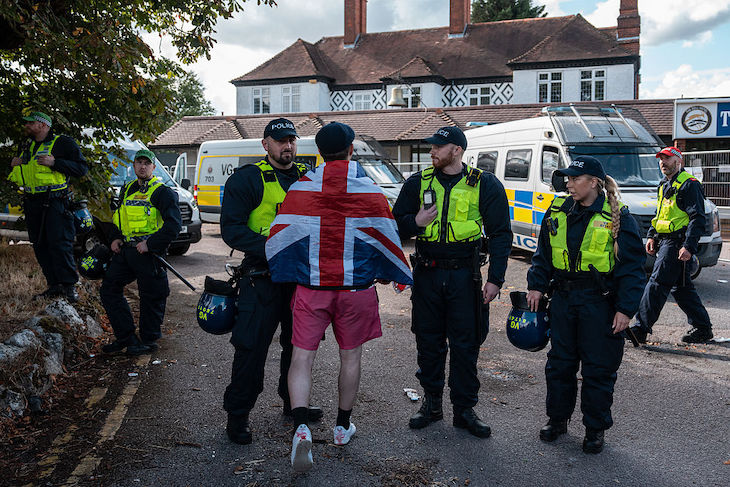If Nigel Farage wanted headline treatment for his immigration speech at Oxford Airport this morning, he certainly got it. So far the reaction has been fairly predictable. But politically, there is a good deal more to this affair than meets the eye.
The difficulty faced by Farage’s opponents is that, whatever the details, the man’s underlying message rings entirely true
One’s first thought, which is probably correct, is that he might well not be able to deliver on his ambition to remove 600,000 people unlawfully here in his first term. An average of 120,000 removals a year is a tall order, especially when opposed tooth and nail not only by carefully-primed lawyers and the entire liberal establishment but also by a number of people who have little respect for any legal niceties when it comes to putting a physical spoke in the deportation wheels. And that is before you come to the sheer logistics of finding aircraft, arranging for flights, putting deportees – sometimes forcibly – onto them, and restraining them while airborne.
Indeed, leaving the ECHR involves giving six months’ notice; denouncing the Refugee Convention 1951 requires one year (it has no provision for suspension, so it would probably be a case of temporary departure). Both would be essential preliminaries. Opposition at home would be bitter, with delaying tactic after delaying tactic deployed in Parliament and outside of it, before notice could even be given. On the most optimistic measures, it would be at least two or three years before flights could start in earnest, and possibly a good deal more.
But this, while true, in a sense misses the point. Indeed, one suspects that when Farage, who is nobody’s fool, is well away from the cameras, he would agree that today’s pledges are aspirations rather than undertakings. He knows that his figure of 600,000 is unrealistic; he has been in politics long enough to know the Herculean effort necessary to move an indolent political establishment happy with the status quo that feeds it.
The difficulty faced by Farage’s opponents is that, whatever the details, the man’s underlying message rings entirely true. That current levels of immigration are unsustainable if we are to preserve our national character is obvious. That governments hitherto, Labour and Conservative, have had no idea how to tackle the problem is plain for all to see. Equally, very large numbers of electors (outside the Home Counties and bijou urban villages) are exasperated with the antics of a human rights regime that seems opposed to any serious attempts to control our borders. These voters are deeply opposed to the idea that they should have to compete with irregular immigrants for services their taxes pay for.
This rather queers the pitch for those who want to blunt the edge of Farage’s rhetoric.
For starters, there was the curious suggestion that our courts might simply refuse to apply Reform’s parliamentary legislation if it went against human rights or basic principles of the common law (a point seriously made by the ultra-wet Dominic Grieve). There have also been attacks on the ‘ripping-up’ of human rights protections (by Daisy Cooper of the Lib Dems) and against Farage’s ‘inflammatory rhetoric’ (Green MP Ellie Chowns). These accusations convince no one but fellow members of the leftist establishment.
Then there are the repeated references by pro-refugee organisations to men, women and children from repressive regimes ‘coming to the UK looking for safety’.
To this, voters will understandably riposte two things: there is no reason why this country should accommodate everyone from a repressive regime to the prejudice of its own citizens, and in any case the evidence is that our refugee system is being cynically and blatantly abused and that something drastic needs to be done.
These two facts – an intentionally provocative Farage speech that will be remembered for some time, and the fact that those who oppose his ideas haven’t been able to dream up much to convince Middle Britain that he is wrong – are the true significance of today’s event.
As Matt Goodwin said at the end of last week, the political Overton window on immigration has irrevocably shifted. From now on, if either Labour or the Conservatives want to deal with the Farage threat, they will have to think of a convincing way of stopping irregular immigration in its tracks. If this does not involve drastic measures such as placing arrivals in encampments, being prepared to eject woman and children, and where necessary making clear that human rights are ultimately less important than the concerns of Middle Britain, they will have to come up with something similar. If they don’t, there will be only one game left in town. And it won’t be theirs.








Comments